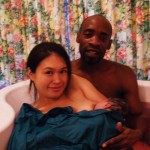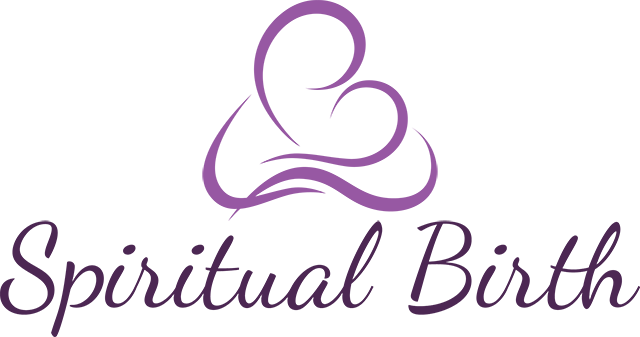
If, as Stanley Greenspan and Stuart Shanker point out in their book “The First Idea”, the mind develops through the practice of social relations, then everything we feel, do or say from the time we conceive a baby to their mature development as adults will affect their developing minds.
Darwin conceptualised the theory of evolution when he found ancient human artefacts and stone tools, yet genetic and anthropologic evidence has found that the DNA of humans 50 000years ago is very similar to the DNA of present day humans. So what is it that has evolved and why are we not behaving in paleolithic ways? Stanley Greenspan’s hypothesis is that our cultural and social worlds determine the extent to which a brain will develop – in other words it has taken humanity 80 000 years to learn what a child of today will learn in 10-18 years. We are developing our conscious mind like never before, we have the ability to ‘stand back’ and analyse data, we have the ability to feel and perceive what others may feel, and we have enormous capacity to memorise knowledge and apply the lessons we have learnt from our experience.
Ironically this evolutionary process has led to repressive efforts across various civilisations to control and manage the sexual function and the birth process. So while on the one hand we exercise more intelligence than any other species on earth, on the other hand, we control the capacity we have to experience pleasure and ecstasy during the sexual act of procreation and the process of birth. Michel Odent alludes to the language of repression in his book “the Functions of the Orgasms” – Latin, French, German and even Chinese words for the genitalia are expressions of shame, particularly for women’s genitalia. Over 100 million women in the world are circumcised, i.e. their genitals are cut off! The advent of Christianity brought more shame , children were conceived in sin and had to be baptised to be purified after the birth. Marriage is, in Catholicism, a way of sanctifying the sexual life and governed by strict rules, as is the modern legal form of the marriage contract. In other cultures, such as Islam, marriage seals alliances and child marriage in Africa and India is predominantly an economic transaction.
Pleasure, Love and Happiness, especially for girls/women, are not part of the deal. Women possess exquisite capacities for precisely these states of being: pleasure, love and happiness.The female ‘hormones of reproduction’ are finely tuned and when conditions are optimal, when women feel safe, secure and loved, cascades of love hormones are released both during the act of love and when giving birth. Sadly, many women never experience this peak of love hormones due to the rituals of control and repression around women’s sexuality and birth. This fact is disturbing, as it implies that babies conceived by these women may not experience blissful union at the moment of conception neither a state of blissful wellbeing during and after birth. This affects the hormonal and neurochemical setpoints of the preborn baby’s brain development as well as capacity to experience pleasure love and happiness.
Even more disturbing is the control and industrialisation in Western societies of the birth process. The birth process is interfered with more than ever before in the history of humanity, depriving women of the opportunity to achieve maximum release of the hormones of love, and stimulating instead the release of fear and stress hormones. We also know that stress hormones hamper the capacity of the preborn baby’s brain to develop, particularly in the area of the emotions. But what does all this have to do with divine birth? The telling of the virgin birth of the prophet Jesus in the Gospel of Luke may hold some clues. Jesus was not conceived “in sin” but ‘by the Holy Spirit” as told to Mary by the angel Gabriel, “And so the child will be Holy”. Jesus was conceived with pleasure not shame, Mary was treated with love by Joseph, not hatred or neglect and Mary expressed great happiness and transcendent joy when she proclaimed the Magnificat:
“My soul proclaims the greatness of the Lord
and my spirit exults in God my saviour;
Because he has looked upon his lowly handmaid.
yes, from this day forward all generations will call me blessed,
for the Almighty has done great things for me…”
Mary stayed with Elizabeth, her cousin, for about three months in the early part of her pregnancy, during which time she would have been cared for and made to feel safe and loved by Elizabeth. A truly great way to spend the first three months of a pregnancy. Then when the birth of Jesus took place there is no record of the involvement of another person at the birth, other than Joseph, her husband. It is likely that Mary surrendered to the flow of hormones and neurochemicals during the process of labour. She trusted that she would safely give birth to her son. Mary was not observed by people she did not know, nor directed to take an unnatural reclining position for the birth. She was not told when to push her baby out, but likely experienced a spontaneous ejection reflex. Neither was she injected with syntocinon to release the placenta. This is Divine Birth.
Mary was in a very positive frame of mind a few days later, according to Luke. After the shepherds had visited the manger where Jesus lay she “treasured all these things and pondered them in her heart”. The baby Jesus was perceived as someone of importance and without shame from the moment of conception and this attitude from his parents continued during his childhood so that when Jesus was about ten he was confounding the priests with his knowledge and wisdom. In other word, Jesus was a fast learner and his brain was able to develop ways of thinking that were ahead of his time! As an adult Jesus led by example, respected his natural surroundings and shared an intelligent message of Divine Love and Compassion.
Yuko, (pictured above) navigated her pregnancy with calm composure and love. She prepared for the birth with confidence and anticipation. Yuko and Deji’s baby, Omotayo, birthed spontaneously and was lifted into the world by his mother. There were no instruction by the midwife, no administration of drugs and no separation after birth. Omotayo spent at least 60 minutes in the bath with his mother and father and spontaneously latched and suckled within that time. There was no crying. Yuko says it was the most amazing experience of her life!
So, while humans have developed the largest cortex of the brain among terrestial species, that same part of our brains must understand that when giving birth, we need, as women, to ‘let go of our thinking functions’ and be imbued with divinity, so that we can best support the developing brain of the baby. We need to allow the parts of our adult brains that release pleasure and love hormones to function by creating optimal conditions for birth: A warm dark, loving and undisturbed environment. Evolution towards divine birth, for most of us, does not happen by chance. It is imperative to ask the right questions, to prepare spiritually, emotionally, mentally and physically and to find the right situation for birth.
We need to rediscover the silence of awe and the reverence of divinity as we evolve towards a greater degree of enlightment in our understanding of our capacity to create human beings imbued with the divine wisdom of love and compassion.

Marianne, this is the most brilliant text I have ever read about our divine power to birt. All women should read your message.
Love,
Amelia
Thank You so much Amelia and I would be delighted for you to share this article. Much Love Marianne
This is a totally beautiful post. I hope you do not mind if I share it on Childbirthsolutions.com. I hope you will continue to write as you do it so well. You are clearly attuned to the present day problems with birth and I just wish EVERYONE could read your post.
Thank You Bonnie. I really appreciate your comment and of course you may share it on Childbirthsolutions.com!
Thanks to Robyn Sheldon’s Mama Bamba Way Antenatal Course and Marianne’s divine midwifery I had a spiritual birth and my daughter is proof of the wisdom in this post. Thank you Marianne for giving me a ‘bigger picture’ in which to understand why she is such an extraordinary child (all bias aside of course!). Fascinating article.
ah, beautiful post. and true. i am reading robyn sheldons mama bamba way and hoping for a spiritual birth.
Brava Marianne! Absolutely magnificent! Keep writing my friend, you are tuned in, turned on and shining your light most magnificently.
Love and blessings,
Stephanie